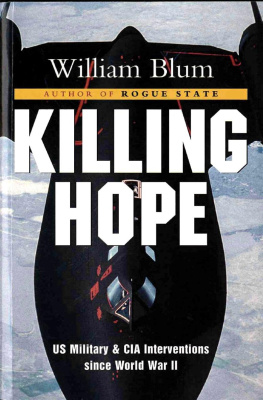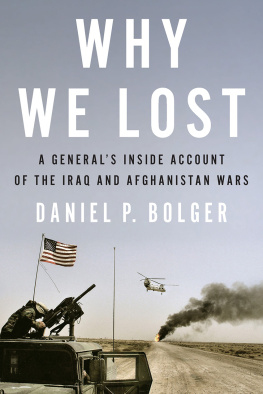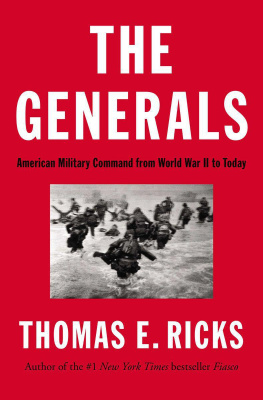
The Generals Have No Clothes
The Untold Story of Our Endless Wars
William M. Arkin and E.D. Cauchi
New York Times bestselling coauthor of Top Secret America and award-winning military journalist
ALSO BY WILLIAM M. ARKIN
History in One Act: A Novel of 9/11
Unmanned: Drones, Data and the Illusion of Perfect Warfare
American Coup: How a Terrified Government Is Destroying the Constitution
Top Secret America: The Rise of the New American Security State (with Dana Priest)
Divining Victory: Airpower in the 2006 Israel-Hezbollah War
Code Names: Deciphering U.S. Military Plans, Programs, and Operations in the 9/11 World
Operation Iraqi Freedom: 22 Historic Days in Words and Pictures (with Mark Kusnetz and Neal Shapiro)
The U.S. Military Online: A Directory for Internet Access to the Department of Defense
Nuclear Weapons Databook, Volume IV: Soviet Nuclear Weapons (with Thomas B. Cochran, Robert S. Norris, and Jeffrey I. Sands)
Nuclear Weapons Databook, Volume III: U.S. Nuclear Warhead Facility Profiles (with Thomas B. Cochran, Milton M. Hoenig, and Robert S. Norris)
Nuclear Weapons Databook, Volume II: U.S. Nuclear Warhead Production (with Thomas B. Cochran, Robert S. Norris, and Milton M. Hoenig)
Nuclear Battlefields: Global Links in the Arms Race (with Richard Fieldhouse)
Nuclear Weapons Databook, Volume I: U.S. Nuclear Forces and Capabilities (with Thomas B. Cochran, and Milton M. Hoenig)
S.I.O.P.: The Secret U.S. Plan for Nuclear War (with Peter Pringle)
Research Guide to Current Military and Strategic Affairs

Simon & Schuster
1230 Avenue of the Americas
New York, NY 10020
www.SimonandSchuster.com
Copyright 2021 by William M. Arkin
All rights reserved, including the right to reproduce this book or portions thereof in any form whatsoever. For information, address Simon & Schuster Subsidiary Rights Department, 1230 Avenue of the Americas, New York, NY 10020.
First Simon & Schuster hardcover edition April 2021
SIMON & SCHUSTER and colophon are registered trademarks of Simon & Schuster, Inc.
For information about special discounts for bulk purchases, please contact Simon & Schuster Special Sales at 1-866-506-1949 or .
The Simon & Schuster Speakers Bureau can bring authors to your live event. For more information or to book an event, contact the Simon & Schuster Speakers Bureau at 1-866-248-3049 or visit our website at www.simonspeakers.com.
Interior design by Lewelin Polanco
Jacket design by Math Monahan
Jacket photograph by Fotografiabasica/Getty Images
Library of Congress Control Number: 2021931214
ISBN 978-1-9821-3099-2
ISBN 978-1-9821-3101-2 (ebook)
To Rikki and Hannah
chapter one

PERPETUAL WAR

I n todays perpetual news machine, the unspoken first commandment is to never stop. Ive borne witness to this, working as an on-air analyst, journalist, and national security expert over two decades. Ive been in the news trenches covering the 9/11 attacks, wars in the Middle East and Africa, and everything from nuclear weapons to domestic watchlists.
During the 2016 presidential campaign season, NBC News asked me to join their new investigative reporting unit. My job was to bring in the big national security storiesbeyond the day-to-day.
What I proposed to report on was perpetual war, a deeply entrenched and inherently invisible system that has taken hold of our government and our societyone that not only controls how we navigate our way in the world but also influences every other priority. Wars in Afghanistan and Iraq have spread throughout the Middle East and into Africa. Somehow, no matter what happens in the countries where we are fighting, despite continual declarations of successkilling terrorist leaders, winning battles, freeing territorythe fighting never diminishes. And, to put it bluntly, despite so much activity, despite the sacrifice of so many lives, despite enormous cost, and despite countless excuses and justifications behind why we cannot stop fighting, we are neither defeating our enemies nor do we ever become more secure.
Then Donald Trump happened.
When in the first week of the administration a disastrous special operations raid went down in Yemen and the new national security advisor, retired general Michael Flynn, rushed to the microphone to threaten Tehran, I thought, with 9/11 fading and a seemingly more aggressive president taking over from Barack Obama, that America might finally pay attention to its many wars, that this system would finally have its reckoning. Pentagon sources told me that officers felt pressured to produce a quick win for Donald Trump and that, in rushing to do so, a Navy SEAL died unnecessarily. An operation justified to weaken Al Qaeda was dragging America into Yemens civil war. What is more, these same sources said, the raid would never have happened had the Obama White House not approved it.
To me, that Yemen raid seemed a tangible way not just to illustrate our lack of attention but to serve as a metaphor for how the never-ending fight sustained itself. Over the months that I worked on the investigation, I uncovered the clandestine fabric of American special operations, secret agreements with the United Arab Emirates and Saudi Arabiaeven a clandestine war with Iran. And yet because Donald Trump had taken over the news, all the public heard was former Obama administration officials and national security gatekeepers telling them how Donald Trump was doing everything wrong and how they had done everything right.
Over the next six months my investigation into perpetual war grew increasingly out of step with this now singular message. A long investigation scheduled to appear on Dateline, NBCs marquee prime-time investigative program, got cut back and buried to air on a weekend morning. And even there, a story that I thought should span two administrations and show an autonomous system operating regardless of who was president transformed into one centered on an interview with the dead sailors father, who was denouncing Donald Trump.
Then North Korea rocketed into the news. As the Navy built up an armada, and as the Air Force brought in bombers, news coverage skewed. It was as if Donald Trump were at the helm of every aircraft carrier and the pilot of every airplane. And even worse, in the frenzy to convey how dangerous Donald Trump was, as if he were responsible for Pyongyangs pursuit of a nuclear weapon, the news media filled with scaremongering and superficial accounts: that North Korea could not only now attack Hawaii and the West Coast but that it could also destroy a powerless South Korea and defeat any American counterattack. News stories lazily reported that Kim Jung-un possessed the fourth largest army in the world, the exact formulation used decades earlier to justify war with Iraq. It was a misleading picture of military might. The message conveyed was that America had no real options other than a perpetual standoff. No one seemed interested in the fact that over the last twenty years the U.S. military had transformed its war-fighting capacity, accruing advantages that not only explained the Norths fears but also paved the way for new solutions.










 PERPETUAL WAR
PERPETUAL WAR 